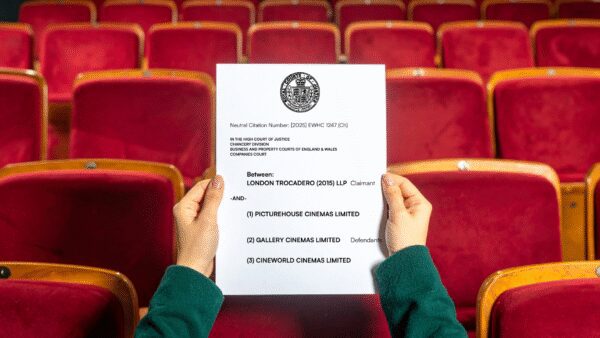Latest Posts

Failure to Prevent Fraud: A Turning Point in Corporate Accountability
The new failure to prevent fraud offence (“FTPF”) under the Economic Crime and Transparency Act 2023 (“the Act”) is now in force (1 September 2025) for large organisations. It is vital that companies consider if they fall within the reach of the new offence.
With increasing public concern of rising economic crime and corporate malpractice, the UK government introduced a significant reform to corporate criminal liability. This new offence mirrors similar offences already in place for bribery (under the Bribery Act 2010) and tax evasion (under the Criminal Finances Act 2017).
Scope and Accountability
The offence applies to large organisations, defined as those meeting at least two of the following criteria:
- More than £36 million in turnover
- More than £18 million in total assets
- More than 250 employees
Section 199(13) of the Act says the offence applies to organisations incorporated or formed by any means which includes under the Companies Act 2006, The Limited Liability Partnerships Act 2000, Royal Charter, Statute (for example the NHS Trust). Current guidance suggests that the concept of “large organisations” is intentionally broad to cover the wider “group” of companies. Organisations does not mean bodies corporate, as such partnerships and Limited Partnerships fall within scope.
Most crucial is the extra-territorial reach of the Act. The offence applies to bodies incorporated and partnerships formed outside the UK but with a UK nexus. UK nexus means that:
- one of the acts that was part of the underlying fraud took place in the UK; or
- the gain or loss took place in the UK.
Whilst the intention from policy makers is that SMEs are not unduly burdened by the new FTPF offence, it should be noted that this is a policy priority. SMEs should remain abreast of regulations as:
(i) they could become within scope, either by virtue of existing legislation changing, or the company’s organic growth, and
(ii) Government guidance clearly indicated that irrespective of whether a company falls within scope, this should be considered industry best practice.
What Constitutes the Offence?
A company will be guilty of the offence if: (a) an “associated person” (e.g. an employee, agent, subsidiary) commits a fraud offence intending to benefit the organisation or another person to whom services are provided on behalf of the organisation, and (b) the organisation failed to prevent the fraud.
Importantly there does not need to be any actual benefit, merely the intention on behalf of the associated person to benefit.
“Associated Person” is interpreted broadly, including employees, agents, contractors, and even some subsidiaries. The intention is to ensure that companies are responsible for fraud committed by individuals who represent them in a relevant capacity.
If the organisation is found to have committed the offence, the sanction is an unlimited fine.
Fraud Offences Covered
The offence encompasses a wide range of economic crimes, including:
- Fraud by false representation (s.2 Fraud Act 2006)
- Fraud by abuse of position (s.4 Fraud Act 2006)
- Fraud by failing to disclose information (s.3 Fraud Act 2006)
- False accounting (s.17 Fraud Act 2006)
- Participating in a fraudulent business (s.9 Fraud Act 2006 and s.993 Companies Act 2006)
- Cheating the public revenue (The Theft Act 1968)
“Reasonable Procedures” Defence
The only defence available is that the organisation had “reasonable procedures” in place to prevent fraud. This is akin to the “adequate procedures” defence under the Bribery Act.
The Government has released some guidance for reasonable fraud prevention procedures and include:
- Top level commitment – responsibility for prevention of fraud should be placed at senior governance level so directors, partners, senior management to ensure a clear governance framework across the entire organisation.
- Risk assessments – these are dynamic procedures and as such they should be regularly documented and reviewed.
- Proportionate risk-based fraud prevention procedures – aim should be to reduce opportunities for fraud which may arise within the companies operating structures.
- Due diligence – appropriate checks in place such as external identity verification, dual approval process on certain transactions.
- Communication – procedures and policies should be effectively communicated through the company through active training.
- Monitoring and review – ongoing monitoring should be in place which actively detects incidents of fraud.
The Government has made it clear that many companies will have adequate procedures in place and that it is not necessary to duplicate work, however simply relying on pre-existing procedures will not mean those procedures are adequate unless they have been reviewed.
Why This Matters
The new offence is significant for several reasons:
- Increased Accountability: Companies can no longer shield themselves behind complex structures or claim ignorance of employee’s actions.
- Shift in Compliance Culture: Like the Bribery Act before it, the Failure to Prevent Fraud offence is expected to drive cultural change, embedding anti-fraud measures into corporate governance.
- Enforcement Pressure: Whilst previous criticised for failing to pursue corporate crime, agencies such as the Serious Fraud Office (SFO) and Crown Prosecution Service (CPS) will be more likely investigate suspicious or concerning activity.
What Should Companies Do Now?
Companies should act now to ensure compliance. Directors, Partners and Senior Managers should understand where and how your organisation might be vulnerable to fraud. Ensure internal procedures are up to date and robust enough to detect and prevent fraudulent activity.
Government guidance has made it clear that it is not sufficient to rely on the procedures that already exist as a defence, if these procedures are not adequate. As such checking existing procedures should be the first priority. This may require external advisors to benchmark and update your policies.
The new offence sends a clear message: preventing fraud is not optional. Companies must take responsibility for the actions of those who represent them and put in place robust, reasonable procedures to stop economic crime in its tracks. In doing so, they not only comply with the law but also strengthen their ethical foundation.
If you require any assistance with reviewing and updating your procedures to ensure compliance, please contact Max Sherrard (msherrard@quastels.com).
Read More
Landmark Decision in Trocadero v Picturehouse
A recent ruling in Trocadero (London) Ltd v Picturehouse Cinemas Ltd & others has clarified the scope of the covenant to pay insurance rent in commercial leases with particular reference to landlord’s commission. At Quastels, we are closely following the implications of this judgment for our clients involved in commercial property leases. The decision carries significance for both landlords and tenants with potential ramifications both in terms of future drafting of leases and retrospective claims from tenants.
Background
The dispute arose out of the Landlord’s (Trocadero (London) Ltd) claim against its tenants (Picturehouse Cinemas and others), for failure to pay the annual rent and insurance rent, albeit, during COVID-19-induced closures. The Landlord’s claim for recovery of rent arrears was successful, however, the tenants brought a counterclaim questioning the level of insurance rent payable under the terms of the lease, specifically the recoverability of the Landlord’s commission. As would be expected in the vast majority of commercial leases of part, the landlord had an obligation to insure the centre in which the units were located and the tenants were obligated to pay the ‘premium’ and associated costs payable by the landlord in keeping the building insured.
In this case, the ‘premium’ charged to the Tenant, by way of insurance rent, was made up of the following:
- The actual cost of insuring the building (the net premium);
- The insurance broker’s commission; and
- The Landlord’s commission, to be recovered from the Tenant for the benefit of the Landlord.
It is worth noting that on occasions, the Landlord’s commission amounted to over 50% of the premium. The landlord’s commission was entirely optional and obtained at the Landlord’s broker’s request based on a commission sharing arrangement – with the broker retaining an amount and repaying the remainder to the landlord.
Judgement
Ultimately, the court did not find that the Landlord’s commission was contractually payable by the Tenant under the terms of the lease and, importantly, ordered that sums received from the Tenant on account of the Landlord’s commission element of the insurance rent were to be repaid to the Tenant.
What was material to the Court was that the Landlord’s commission was optional, therefore, hypothetically speaking, even if the Landlord’s commission was deemed to be payable, it would not satisfy the criteria of being payable for keeping the building insured, but rather for “providing the Landlord with an opportunity to profit at the Tenant’s expense” as Justice Richards explained. Justice Richards further commented that “the costs in question are in the nature of overheads or costs of the Landlord’s letting business which is to be paid out of the receipt of rent”, indicating that any administrative costs in Landlords arranging buildings insurance should form part of their commercial considerations or financial analysis before letting a premises.
What does this mean for you as a Landlord or a Tenant?
There is a general consensus amongst legal professionals that this ruling may act as a catalyst for commercial tenants to look more closely into any embedded commissions that could be hidden within their insurance rents, in the hopes of seeking restitutionary remedies in respect of any payments previously made.
However, landlord commission structures are commonplace in commercial buildings insurance set-ups (albeit usually at a much lower percentage than as seen in this case), and such remedies would only be afforded to tenants in the absence of clear insurance provisions in the lease. There are various conditions which must be satisfied in order for a tenant to have legitimate grounds for such a claim. It is therefore crucial that tenants seek legal advice on (1) the scope of any insurance rent, before committing to a lease and (2) provisions in existing leases if tenants consider they may have a potential claim for overpaid commission.
In terms of point (2) and potential claims, tenants should act quickly given that, as a general rule (with some exceptions), a claim under restitution is time limited to six years.
Landlords should be cautious before adopting an all-encompassing approach to cost recovery as it is now clear that the courts will be unlikely to favour the landlord and permit the recovery of landlords’ commissions where this is not expressly stated in the lease. This calls for Solicitors to work collaboratively with their landlord clients to avoid any ambiguity in the recoverability of all elements of insurance rent.
Conclusion
Trocadero v Picturehouse provides us with clear guidance that the courts expect landlords abd tenants to negotiate lease agreements critically, to avoid any disparity in the respective parties’ financial obligations. Going forwards, the standard commission fee being charged to tenants could be subject to challenge in new leases and could result in numerous successful claims for previous such payments to be recovered.
Our expert Commercial Real Estate and Property Dispute Resolution departments are here to provide both tenants and landlords with bespoke advice in relation to both the interpretation of existing leases and the possibility of claims being made for previous overpayments and the drafting of insurance provisions in future leases.
Read More
Inheritance Tax: Successive Reforms to Succession
What can we expect?
According to The Guardian, the Labour Government is looking to introduce further changes to UK inheritance tax. These changes would represent a further squeeze on planning opportunities available to families, following the abolition of the non-dom regime (2025), reforms to agricultural and business property relief (2026), and bringing pensions into chargeability (2027). With these successive yearly reforms, do we have further reforms on the horizon and how might they impact succession plans?
Turning to the latest attempt by the Treasury to gauge public sentiment, ministers are considering introducing:
- a lifetime cap on gifting; and
- changes to taper relief that reduces IHT rates on gifts made between three and seven years before death.
Under the current rules, any gift (of whatever amount) made more than seven years before death is typically exempt from IHT. As for taper relief, the rate of tax levied on gifts within that seven year period ranges from 32% down to 8%. In effect, the longer you live, the more you and your heirs are rewarded.
We can only speculate for now, but might a lifetime cap apply to the donor or the donee. For example, might there be a lifetime gifting cap of £1 million to be applied across any number of beneficiaries and once that £1 million cap is hit (even if distributed among, say, 15 recipients), an immediate tax charge arises, much like a gift tax? Or, would the Government look to apply a cap on each donee (or recipient) of, say, £100,000. If this amount is exceeded, then again, it triggers a lifetime gift tax on the excess.
Beyond the speculation, with the Government exploring a range of options (including a wealth tax) to help overturn their £40 billion hole, the reality for clients is that traditional planning might soon be severely curtailed.
What to do?
If introduced, the new cap could squeeze succession and tax planning further, resulting in far greater tax liabilities and possibly the sale of assets if gifting in delayed. Combined with the reforms to APR and BPR, delayed gifting could lead to the fragmentation of family ownership of assets and businesses. A potential reform to taper relief might add insult to injury, whatever form this ends up taking.
There are, of course, other considerations to gifting including potential capital gains tax implications and the loss of control, so gifting may be as much of a psychological burden to overcome as well as one that is fiscal in nature. Given the capital gains tax element, there is always the risk of double taxation which is perhaps its own standalone article.
When should we act?
Lawyers typically answer with ‘it depends’. However, with the ongoing erosion of IHT reliefs, the time is NOW. Don’t wait until the Budget, as there will likely be anti-forestalling rules preventing you from acting once there’s ‘clarity’ means it’s too late by then.
Client’s should therefore look to:
- Maximise current exemptions: Gifts made today under the current system still benefit from full taper relief and the seven-year exemption window;
- Use every available relief: Annual exemptions (e.g., £3,000 per year), ‘gifts from surplus income’, wedding gifts, and small gifts are still intact, but these may become more restricted with anticipated reforms;
- Avoid being caught off guard: Future reforms may apply retrospectively to gifts made after certain dates or impose cumulative limits such that any delay could further erode your ability to gift tax-efficiently.
In summary
If you have assets you can afford to gift, there is no time like the present. The Guardian article is a warning of what is to come and so clients should act with certainty of the current system noting that there is a window of time before any future reforms become law.
If you have any queries relating to inheritance tax and gifting, please contact Ben Rosen of Quastels LLP.
Read More